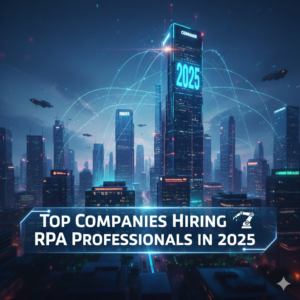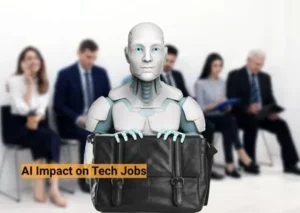Top Skills and Certifications Every RPA Developer Needs to Stand Out in 2025
How to become an RPA developer is a key question today, as RPA skills grow increasingly crucial in our fast-paced, automation-driven tech landscape. With companies moving towards digital transformation, Robotic Process Automation (RPA) has become a crucial solution for automating repetitive processes, increasing productivity, and eliminating human errors. But what truly distinguishes an RPA developer in this competitive landscape?
In this blog, we will analyze the best skills and RPA certifications 2025 that all professionals must invest in to remain ahead of the curve. Whether you’re new to the field or looking to progress on the RPA career ladder, it’s important to know the appropriate combination of technical skills and well-recognized credentials.
What is RPA and Who is an RPA Developer?
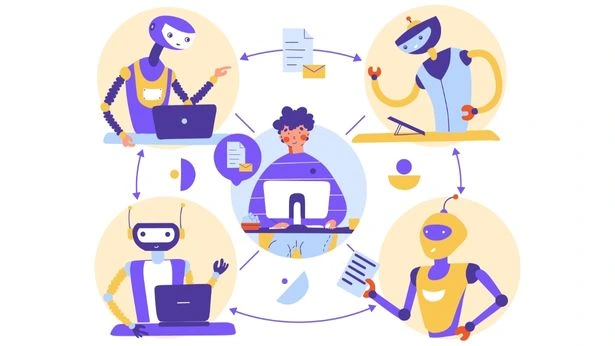
Robotic Process Automation (RPA) refers to the application of software robots that automate rule-based and repetitive tasks that normally fall within human responsibility. The robots engage with computer systems as well as applications to execute processes more precisely and at higher speeds.
An RPA developer is a technical expert who develops, constructs, tests, and maintains such automation processes. They are supposed to define automation potential, create bots with leading RPA tools, and ensure the automation supports business objectives.
Why RPA Skills and Certifications Matter in 2025
As the global industry adopts rapid automation, the demand for skilled RPA developers is at an all-time high. Employers are looking for professionals who not only understand how to build a bot but also know the latest equipment and earn a globally recognized RPA certificate by 2025.
Whether you are curious about how to become an RPA developer or you are already in the field, achieving the correct combination of skills and certificates can greatly promote your career.
Essential RPA Developer Skills for 2025
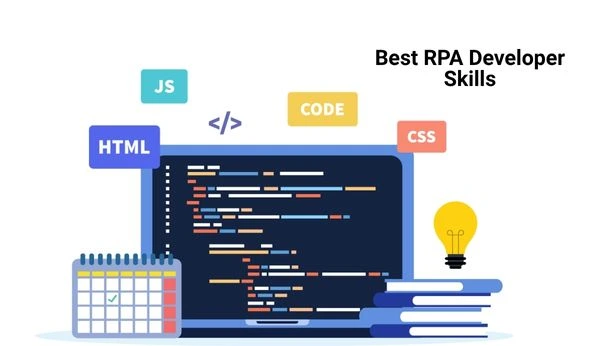
The following are the RPA developer skills that one needs to survive in 2025:
1. RPA Tool Skills: Knowledge of leading RPA tools to learn, like:
- UiPath
- Automation Anywhere
Blue Prism - Power Automate
- Kofax
All these tools have strengths of their own, and most employers prefer developers who are proficient across multiple tools.
2. Programming Skills: Though RPA is mostly low-code, knowledge of languages like:
- Python
- JavaScript
3. Problem-Solving and Analytical Skills: Awareness of business processes and opportunities for automation is a central function of an RPA developer. Analytical reasoning assists in process mapping as well as developing streamlined workflows.
4. Database and API Knowledge: Knowledge of SQL, REST APIs, and web services is essential to connect bots to multiple systems and data sources.
5. Knowledge of AI and ML Concepts: With the integration of AI and RPA (Intelligent Automation), having a working knowledge of machine learning, OCR, and natural language processing (NLP) will become more desirable.
6. Project Management and Collaboration: RPA developers usually collaborate with cross-functional teams. Familiarity with Agile methodologies, SCRUM, and collaboration tools such as Jira or Trello would be an advantage.
7. Documentation and Process Mapping: Using tools like Microsoft Visio, Lucidchart, or Bizagi helps document workflows and align automation with business requirements.
Also Read: Advantages and Disadvantages of RPA
List of Best RPA Certifications for 2025
Getting the top RPA certifications in 2025 makes your credentials worth more and increases the chances of getting noticed globally. Below are some of the most prominent RPA certifications 2025 to apply for:
1. UiPath Certified Advanced RPA Developer (UiARD): This one validates advanced-level skills in UiPath. It’s employer-recognized globally.
2. Automation Anywhere Advanced RPA Professional: This one is for developers with hands-on expertise and demonstrates mastery in creating and scaling bots.
3. Blue Prism Developer Certification: This global certification guarantees you are capable of Blue Prism development and process design.
4. Microsoft Power Automate Certification: Best suited for working professionals within the Microsoft ecosystem. It includes Power Automate basics and complex flows.
5. Certified RPA Practitioner by AICPA: Good one for working professionals transitioning from business to tech roles. It includes governance, design, and ROI analysis.
6. Kofax RPA Certification: Best suited for finance and logistics professionals, where Kofax is often utilized.
7. LinkedIn Learning & Coursera RPA Certificates: Although not vendor-specific, these are worthwhile for starters and provide a basic insight into automation.
Final Outcome on Skills and Certifications for an RPA Developer
The automation world is growing rapidly and is leading the RPA charge. To stand out, RPA developers should mix technical mastery with strategic thinking. By mastery in RPA developer skills and earning a respected RPA certificate in 2025, you not only prove your career in the future, but also keep yourself in a position as a valuable asset in any organization.
Ready to supercharge your automation career? Start by exploring beginner-friendly RPA platforms like UiPath or Automation Anywhere and enroll in certification programs that align with your goals if you’re seeking expert guidance or job opportunities—partner with a trusted RPA recruitment agency to accelerate your growth and confidently navigate your RPA career path.
Frequently Asked Questions About RPA Career Path
Q1. What is an RPA developer?
An RPA developer creates, develops, tests, and maintains bots that perform repetitive digital tasks on business systems.
Q2. What are the key RPA developer skills of 2025?
Leading skills are RPA tool proficiency, programming skills, problem-solving skills, process mapping, and knowledge of AI/ML.
Q3. What are the best RPA job certifications for 2025?
UiPath Advanced RPA Developer, Automation Anywhere Professional, Blue Prism Developer, and Power Automate are among the best choices.
Q4. How long does it take to become an RPA developer?
It takes 3–6 months if you are serious about learning with focus and practice on your own.
Q5. What are the top RPA tools to learn?
UiPath, Automation Anywhere, Blue Prism, Microsoft Power Automate, and Kofax are among the most popular ones.
Q6. Is RPA a viable career in 2025?
Yes, RPA is increasingly in demand all over the world, particularly with the inclusion of AI into automation.
Q7. Do I require a technical background to be an RPA developer?
Although a technical background is beneficial, numerous tools are low-code and available for business or operations professionals.
Q8. Where can I get RPA job opportunities?
Search for jobs on job boards, LinkedIn, and reach out to expert RPA recruitment agencies for customized opportunities.
Related Article: Ultimate Guide to Robotic Process Automation (RPA) Courses
